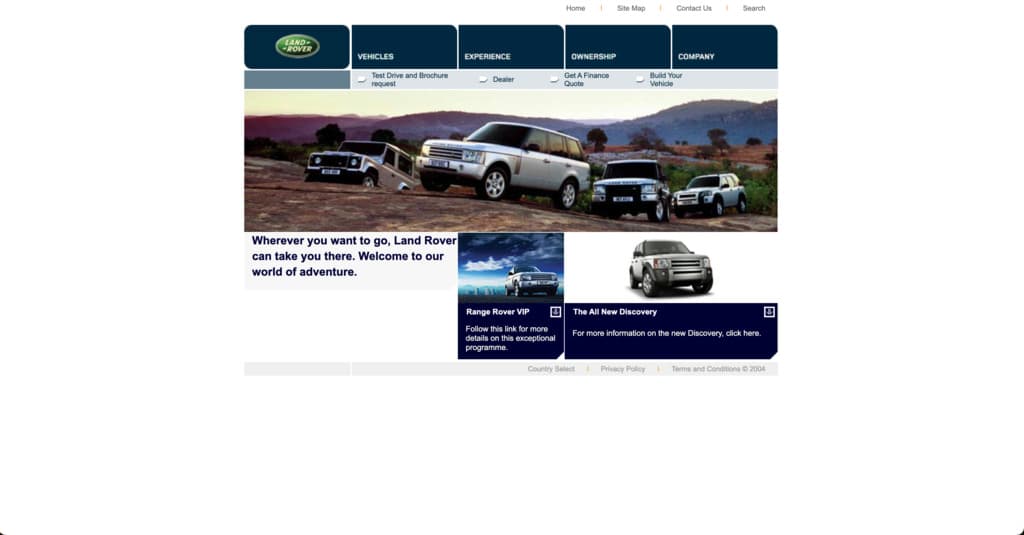
How has Land Rover changed over time
Introduction
Over the years, Land Rover's marketing strategies have evolved, reflecting changes in technology, consumer preferences, and the brand’s own identity. By examining Land Rover’s official marketing websites from various years, we can uncover how these changes shaped the way the brand presented itself to the world. Each iteration tells a story, not just about Land Rover, but about the shifting landscape of automotive marketing.
New Discovery and revamped brand in 2004
In 2004, Land Rover, a British manufacturer of premium off-road vehicles, made several strides under the ownership of Ford Motor Company. The year saw the debut of the third-generation Discovery, also known as the LR3 in North America, which introduced advanced technologies like Terrain Response, enhancing off-road capability and driving ease.
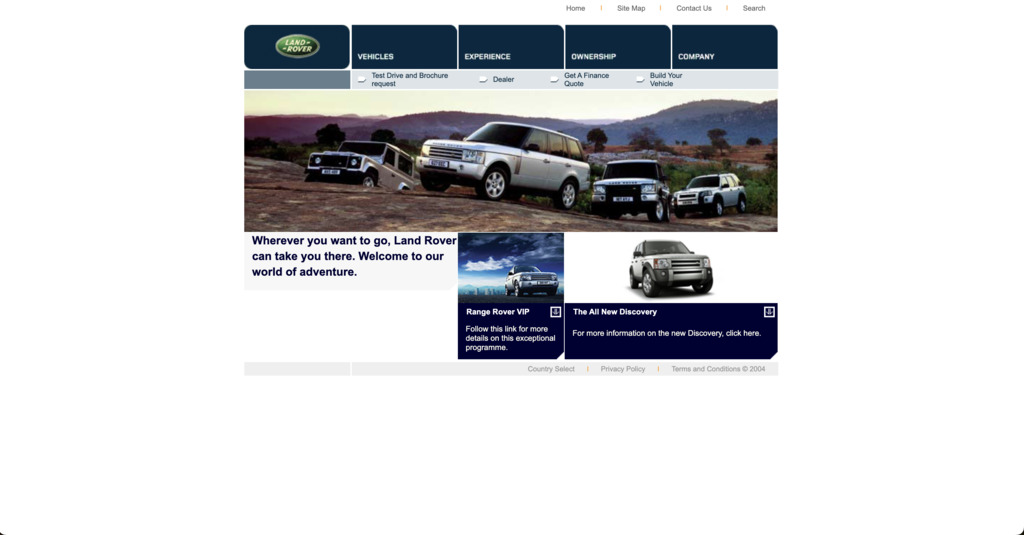
Land Rover continued to strengthen its market share in the luxury SUV segment capitalizing on its rugged image, which resonated with its customer base. This period marked a significant evolution in Land Rover’s lineup, blending new technology with its classic design ethos.
Financial crisis and lower emission focus in 2009
In 2009, Land Rover navigated a challenging economy focusing on technology and sustainability. The company unveiled updates to its Range Rover, Range Rover Sport, and Discovery 4 (LR4), featuring improved efficiency, refreshed designs and new technology like the 3.0-liter TDV6 diesel engine.
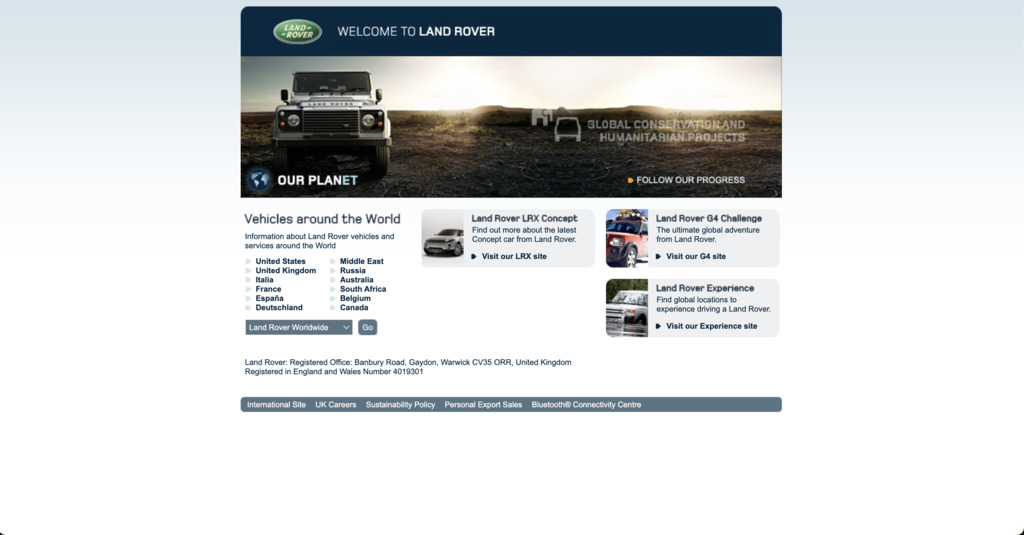
During this year, Land Rover also focused on reducing its environmental impact, committing to lower emissions across its fleet. Additionally, the brand continued to enhance its global market presence, despite economic downturns affecting the automotive industry worldwide. These developments reinforced Land Rover’s position and market share in luxury and off-road vehicles.
Launch of Range Rover Evoque in 2011
In 2011, Land Rover made headlines with the launch of the Range Rover Evoque, a compact luxury SUV that marked a significant departure from its traditional lineup. The Evoque received widespread acclaim for its bold design, premium features, and fuel efficiency, appealing to a younger and more urban audience. Land Rover also emphasized sustainability, incorporating lightweight materials and efficient powertrains in its vehicles.
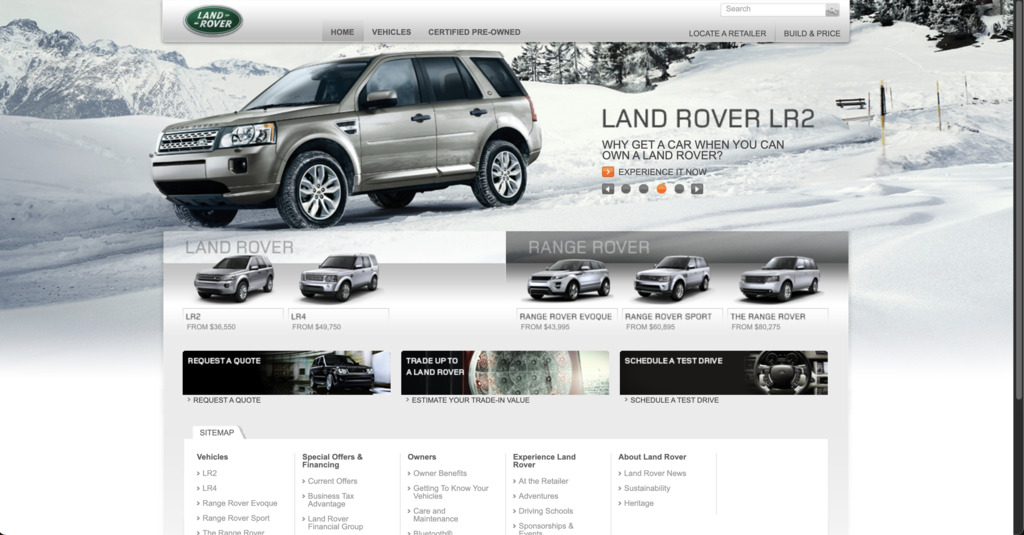
Additionally, the company continued to expand its global footprint, particularly in emerging markets, as part of its growth strategy under Tata Motors' ownership.
Hybrid Range Rover models and emerging markets in 2018
In 2018, Land Rover continued to innovate and expand its lineup, with the launch of the Range Rover and Range Rover Sport plug-in hybrid models, showcasing the company’s efforts to electrification and sustainability. The brand also introduced the limited-edition Range Rover SV Coupé, a luxury two-door SUV emphasizing bespoke craftsmanship, although its production was later canceled.
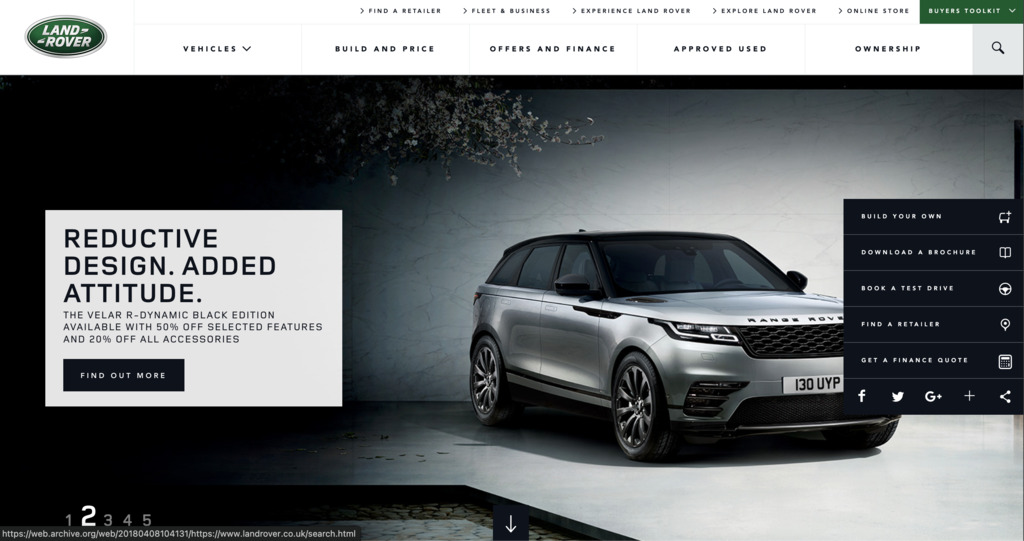
Land Rover focused on enhancing its global presence, particularly in China and other major markets, despite facing challenges from Brexit and declining diesel sales in Europe. The company also celebrated its 70th anniversary with various events and initiatives, highlighting its history and enduring appeal in the off-road and luxury segments.
COVID-19 and focus on sustainability in 2020
In 2020, Land Rover faced challenges from COVID-19 pandemic but continued to push forward with key developments. The company launched the all-new Land Rover Defender, a modern reinterpretation of its iconic off-road vehicle, which was praised for its durability, advanced technology, and adaptability.
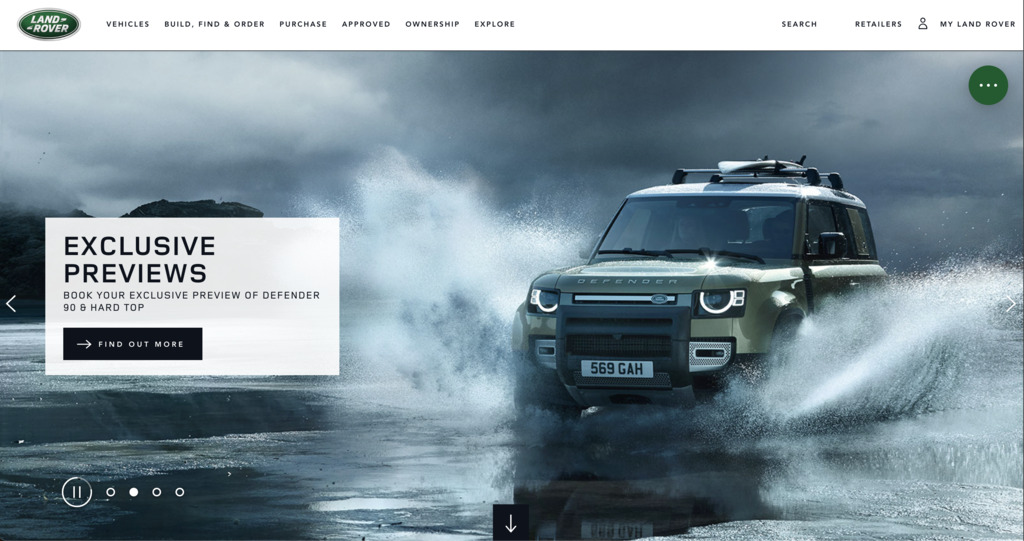
Land Rover also accelerated its focus on sustainability, aligning with Jaguar Land Rover’s broader goal of achieving net-zero carbon emissions by 2039. Despite disruptions to manufacturing and sales, Land Rover leveraged digital platforms to engage potential customers.
Revealing all-electric Range Rover in 2024
In 2024, Land Rover continued its journey with various advancements and projects. The company conducted rigorous hot-weather testing of its upcoming all-electric Range Rover prototype in the UAE, showcasing its capabilities in challenging conditions. The model is positioned as a highly capable electric luxury SUV, with client reservations expected in 2025.
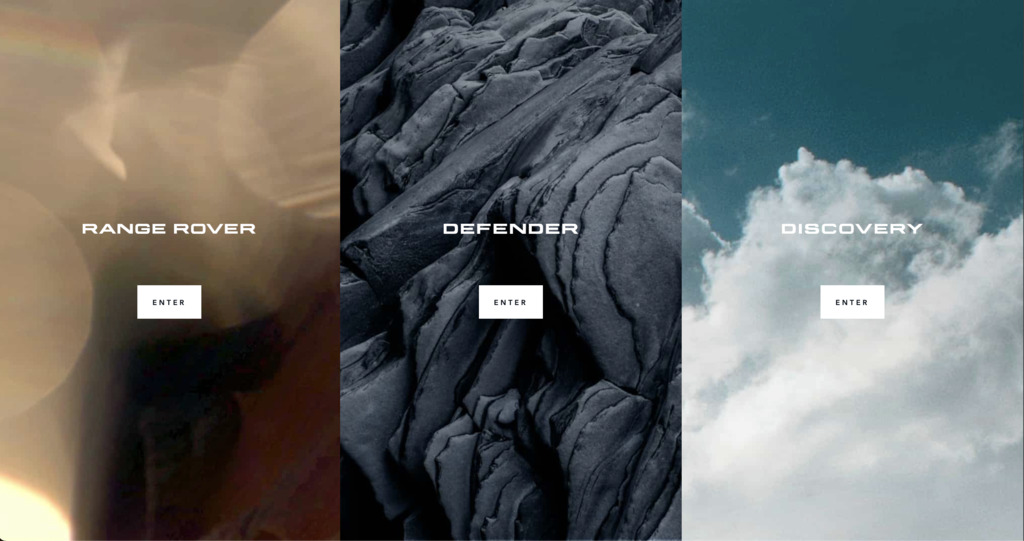
Additionally, the Defender brand expanded its motorsport ventures with the Defender Rally Series UK and European Baja Championship, marking its presence in competitive racing. Furthermore, Land Rover announced that the Defender would be the official car partner for the Dakar Rally starting in 2025, with plans for a works team entry in 2026
Summary
The evolution of Land Rover’s marketing website mirrors the broader journey of the brand itself. From its roots as a rugged, utilitarian vehicle maker to its current status as a luxury lifestyle item, Land Rover has consistently adapted to changing times.
By revisiting key moments in its marketing history, we see how the brand’s message has grown more sophisticated while staying consistent to its adventurous origin.
Andreas Tzionis
—
6/12/2024